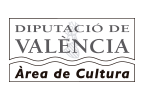Cinematographic language is the newest and most updated among all the languages developed by us humans
Lumière brothers’ cinematograph was presented in Paris on 28 December 1895. But the cinematographic language, strictly speaking, took a longer time to develop. The elements of its grammar - the architecture of shots and sequences – and specially its syntax – film editing – improved along the first decades of the 20th century, even if they have not actually ceased to evolve along the one hundred years of life of this means. In any case, it appears to be quite clear that cinematographic language – audiovisual language – is the newest and most updated one among all the languages developed by us humans, except for computer language.

Film still from «Death in Venice» (Luchino Visconti, 1971)
Since the sixties, some European filmmakers experimented with this language to create a new and more personal way of telling stories. Rather than conductors, they were composers of visual symphonies. There were Italian ones like Rosselini, Visconti or Fellini, French ones like Truffaut and Godard; Swedish like Bergman or German like Herzog. They were authors that sometimes behaved coordinately within movements like the French nouvelle vague, the English free cinema or Italian neorealism. Their films enjoyed audience and critics’ success even in a Spain which then started to rid herself of Franco’s domination. Rather than films, they were audiovisual reflections of great depth about social, political and philosophical issues.
People attended to Film Forums to do far more things than watching films: they went there to socialize, debate, argue and discuss
Most of the time these films were not watched in traditional cinema halls but in Film Forums where people attended to do far more things than watching films: they went there to socialize, debate, argue and discuss about good cinema but also about feasible revolutions, intimate resistances and home subversions within a critical spirit that today we have largely lost.

Film still from «Aguirre, la cólera de Dios» (Werner Herzog 1972)
Now, the MuVIM hopes to recover this merry and intellectual atmosphere of Film Forums by screening a selection of the best films from this extraordinary moment of creativity. Films that will be briefly introduced to by film experts and critics. A unique opportunity of watching once more, on the big screen, great cinematographic treasures which are much more than simple films.
Original version
dubbed into Spanish
MuVIM Auditorium| 19h
Free entrance
Thursay 2 May | 19 h
La caza (Carlos Saura, 1966)
Introduced by Juan Rodríguez Teruel
Thursday 9 May | 19 h
La muerte en Venecia (Luchino Visconti, 1971)
Introduced by Joan Carles Martí
Thursday 16 May | 19 h
Amarcord (Federico Fellini, 1973)
Introduced by Ramón Alfonso and Marc Borràs
Thursday 23 May | 19 h
La soledad del corredor de fondo (Tony Richardson, 1962)
Introduced by Joaquín Vallet Rodrigo
Thursday 30 May | 19 h
Besos robados (François Truffaut, 1968)
Introduced by Ramón Alfonso
Thursday 5 June | 19 h
El séptimo sello (Ingmar Bergman, 1957)
Introduced by Ramón Alfonso and Marc Borràs
Thursday 13 June | 19 h
Aguirre, la cólera de Dios (Werner Herzog, 1972)
Introduced by Carlos Losilla




